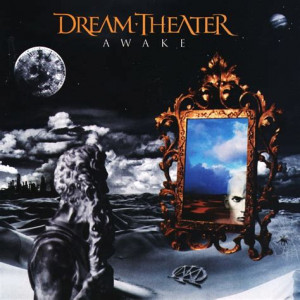Published on Aug 7, 2000
By 1994, progressive rock band Dream Theater had found what they
may have thought they wouldn’t have: consistency. They had secured
a deal with a record label, and recorded two albums with the exact
same lineup.
But their third album,
Awake, is not as consistent as the band was at that time.
There are some great moments on this release that build on their
groundbreaking work
Images And Words, but in the end, things do begin to
splinter for James LaBrie and company.
In a sense, what you are presented with on this disc is the
portrait of a band torn between two worlds. On one hand, you have a
group who wants to live up to the success of the surprise hit “Pull
Me Under,” and struggles to come up with a song that has all the
right hooks (“Caught In A Web,” “Innocence Faded”). But right
behind it is a band who want to follow their progressive roots,
singles be damned (“6:00”, the three-song suite “A Mind Beside
Itself”). In the end, you’d have to call it a draw, and everyone
loses some ground.
If you listen to “6:00,” the opening track from
Awake, you quickly will realize that Dream Theater is a band
who are best off left alone to do what they do the best – and that
is churn out progressive rock. This song has everything, from a
catchy rhythm pattern to John Petrucci’s blistering guitar work,
from Mike Portnoy’s simple yet complex drum work to LaBrie’s
unrestrained vocals. It holds the promise for great things to
come.
And while the first half of
Awake doesn’t quite turn into the blockbuster it could have
been, it still holds out much promise for those willing to put the
time and effort into listening to it. “Caught In A Web” actually
does a disservice to Dream Theater, as it shifts the focus from
strict prog-rock to a radio-friendly song. (I will admit, though,
that Petrucci’s guitar work on this one is astounding.) And while
this track is still a favorite live staple of the audience, it was
an unnecessary shift in style. Fortunately, the three songs that
make up “A Mind Beside Itself” – the instrumental “Erotomania,”
“Voices” and “The Silent Man” – help to undo some of the
damage.
It is only in the second half of
Awake that the struggle between the two musical sides truly
shows its head. Tracks like “The Mirror,” “Lifting Shadows Off A
Dream” and “Lie” all focus on a band struggling to determine which
musical path will serve to provide the greater good for them. In
the end, it sounds like they try to keep one foot on each path, and
the music suffers. It’s not that these songs are unlistenable; it’s
just that they don’t have the glue-like qualities that keep the
listener focused on other works by Dream Theater.
Maybe there were forces working on the band that I’m just not
aware of at this stage. After all, this album proved to be
keyboardist Kevin Moore’s swan song with the group. But whatever
the case,
Awake is not as strong of an album as it could have been.
Would Dream Theater discover the best musical route for them to
take? Would it take a toll on their music? We’ll have to see about
that down the road…
